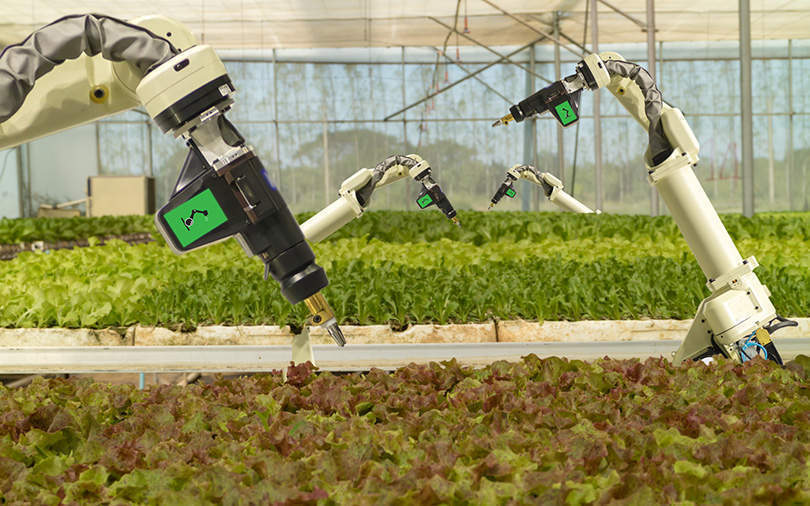The agri-tech industry stands at the forefront of a technological revolution that is reshaping agriculture, particularly in its role in disaster mitigation. This sector’s innovative solutions are driving transformative changes in how we approach disaster preparedness, response, and resilience in agricultural communities worldwide. By leveraging cutting-edge technologies and scientific advancements, agri-tech is playing a pivotal role in safeguarding livelihoods, ensuring food security, and mitigating the impact of disasters on agricultural systems.
Anticipating Agricultural Risks
One of the key contributions of the agri-tech industry to disaster mitigation is the development of early warning systems tailored for agricultural contexts. These systems harness a combination of data analytics, remote sensing, and machine learning algorithms to analyze various factors such as weather patterns, soil conditions, and crop health indicators. By processing these data in real-time, early warning systems can provide farmers with timely alerts about potential disasters, including floods, droughts, pest outbreaks, and extreme weather events.
For example, advanced weather forecasting models integrated into early warning systems can predict the onset of adverse weather conditions, allowing farmers to take preemptive measures such as adjusting planting schedules, securing farm infrastructure, or implementing water management strategies. Similarly, satellite imagery and drone surveillance can detect changes in crop health or pest infestations, enabling farmers to deploy targeted interventions to mitigate crop losses.
Optimizing Resource Management
Precision agriculture is another area where agri-tech innovations are revolutionizing disaster resilience in agriculture. This approach involves the use of advanced technologies such as drones, satellite imagery, GPS, and sensor networks to monitor and manage agricultural practices with unprecedented precision. By precisely mapping variations in soil properties, moisture levels, and crop health across fields, precision agriculture enables farmers to optimize resource management and improve agricultural productivity while minimizing environmental impact.
For instance, sensor-based irrigation systems can deliver water directly to the root zone of crops based on real-time soil moisture data, ensuring efficient water use and reducing the risk of drought-induced crop failures. Similarly, precision application of fertilizers and pesticides based on localized soil and crop conditions minimizes input wastage and environmental pollution while maximizing crop yields.
Breeding Climate-Resilient Crops for Adaptation
The agri-tech industry is also actively involved in developing climate-resilient crop varieties through advanced breeding techniques and genetic engineering. These climate-smart varieties are designed to withstand environmental stresses such as drought, heat, salinity, and pest infestations, ensuring stable yields even in adverse conditions. By breeding for adaptation, agri-tech companies are contributing to building resilience in agricultural systems, enabling farmers to maintain productivity and livelihoods despite changing climate patterns and increasing frequency of extreme weather events.
For example, drought-tolerant maize varieties developed using molecular breeding techniques exhibit enhanced water-use efficiency and resilience to water scarcity, allowing farmers to sustain maize production even during prolonged dry spells. Similarly, heat-tolerant rice varieties engineered with heat shock proteins and other molecular markers enable rice cultivation in regions prone to heat stress, expanding agricultural opportunities and enhancing food security in vulnerable areas.
Smart Irrigation Systems
Smart irrigation systems represent another innovative solution offered by the agri-tech industry to enhance disaster resilience in agriculture. These systems leverage a combination of sensors, IoT devices, and data analytics to monitor soil moisture levels, weather forecasts, and crop water requirements in real-time. By precisely delivering water to crops based on their actual needs, smart irrigation systems optimize water use efficiency, reduce water wastage, and mitigate the risk of drought-induced crop failures.
For instance, sensor-based soil moisture probes embedded in the root zone of crops continuously monitor soil moisture levels and transmit data to centralized control systems. These systems dynamically adjust irrigation schedules and water application rates based on real-time sensor data, ensuring optimal moisture levels for crop growth while conserving water resources. Additionally, weather-based irrigation scheduling algorithms consider forecasted rainfall and evapotranspiration rates to optimize irrigation timing and minimize water loss due to runoff or evaporation.
Digital Farming Platforms
Digital farming platforms offered by agri-tech companies are empowering farmers with access to a wealth of agricultural information, knowledge, and best practices. These platforms integrate weather forecasts, market trends, agronomic advice, and farm management tools into user-friendly interfaces, accessible via mobile devices or computers. By providing farmers with actionable insights and decision support tools, digital farming platforms enable them to make informed choices, adapt to changing conditions, and enhance resilience in the face of disasters.
For example, mobile applications developed by agri-tech companies provide farmers with personalized recommendations on crop selection, planting schedules, fertilization regimes, and pest management strategies based on localized soil and weather conditions. These applications also offer real-time alerts and notifications about impending weather hazards, market price fluctuations, and agronomic advisories, empowering farmers to make timely decisions and mitigate the impact of disasters on agricultural production.

